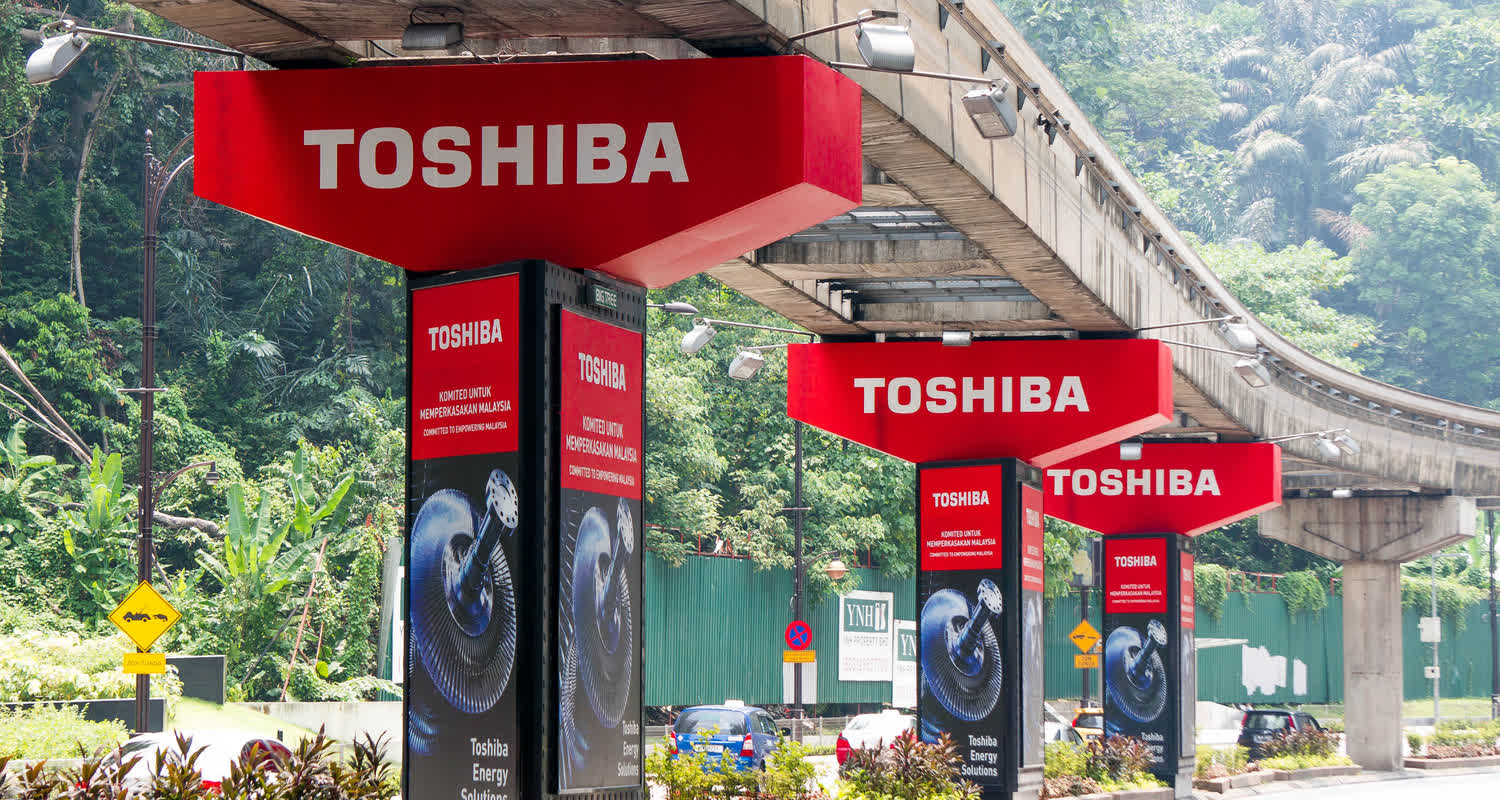Why it matters: For around 146 years, Toshiba has been one of the symbols of Japan's high-tech industry, growing from a consumer electronics company into a giant that can also build power plants. After selling its memory business to stay afloat, the company will now break itself into three separate entities in response to pressure from activist shareholders.
Toshiba today announced plans to split into three separate companies that will focus on semiconductors, infrastructure, and devices.
According to Reuters, the move is at least partially motivated by lessons learned from the corporate governance scandal from 2015. The main goals are to improve shareholder value and encourage activist shareholders like Elliott Management, Farallon, and Third Point to exit.
The company says it will separate its core operations into two new publicly traded companies --- one for nuclear power and infrastructure services, and one for devices. What remains of the Toshiba business will continue to exist as a separate entity that will hold a 40.6 percent stake in memory chipmaker Kioxia and other related assets.

The reorganization process is expected to be completed by the second half of 2023, and the company also plans to deliver 100 billion yen ($875 million) in shareholder returns over two years. CEO Satoshi Tsunakawa said in a statement that "over our more than 140-year history, Toshiba has constantly evolved to stay ahead of the times. In order to enhance our competitive positioning, each business now needs greater flexibility to address its own market opportunities and challenges."
Toshiba's three-way split comes only days after 129-year old conglomerate General Electric announced a similar move.
The two companies are joined by Johnson & Johnson, which also announced it will break itself into two companies. Meanwhile, the rumor mill says Western Digital is in advanced talks with Kioxia for a possible merger that could be valued at over $20 billion.
